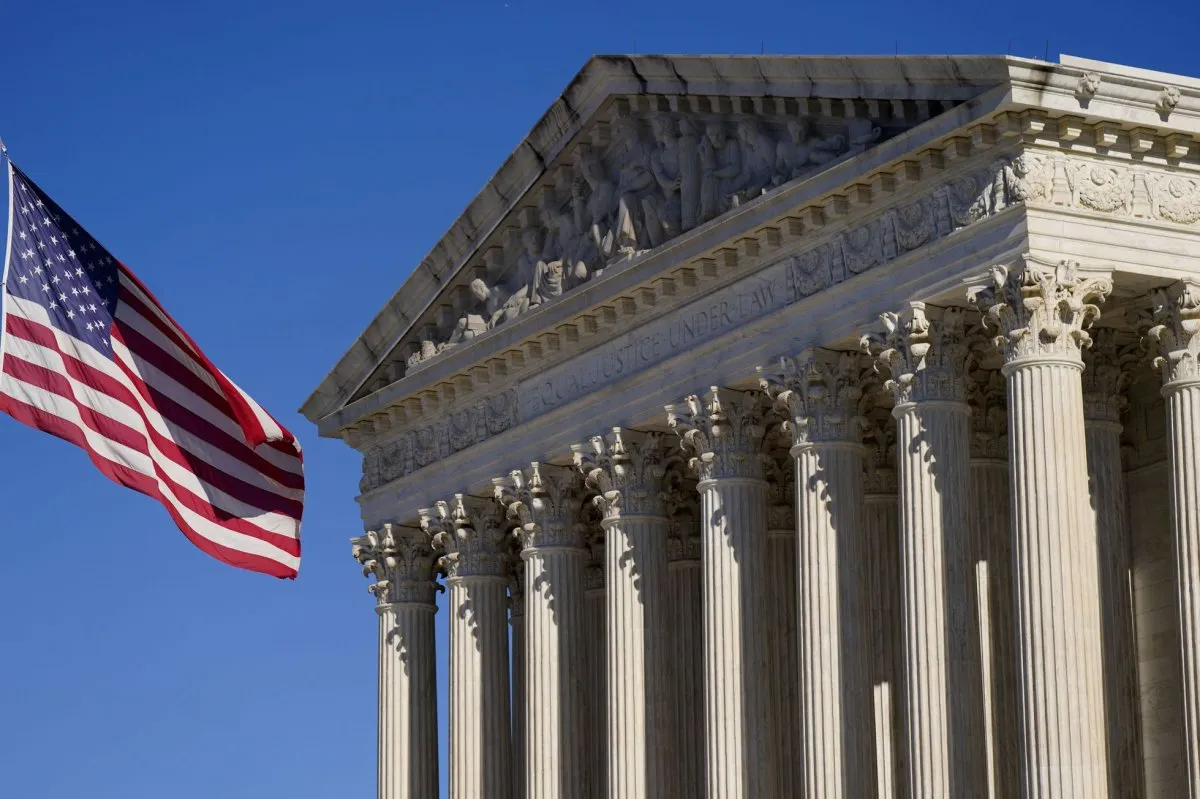Supreme Court Justices Challenge Texas Laws: What It Means for Your Online Freedom
The U.S. Supreme Court is currently at the center of a heated debate concerning Texas’ controversial social media law, which aims to restrict large platforms from censoring content based on political viewpoints. This legal challenge raises significant questions about the balance between free speech and the rights of private companies to moderate their content. As the justices deliberate, the implications of their ruling could reshape the landscape of online expression for millions of users across the country.
The law in question, known as House Bill 20, was enacted in 2021 and has been framed by its supporters as a necessary measure to combat what they perceive as anti-conservative bias on social media platforms. The legislation prohibits platforms with over 50 million users from censoring content based on the author’s viewpoint. This law has sparked a fierce debate about the extent to which government can regulate private companies and their content moderation practices.
The Supreme Court’s involvement comes after the 5th U.S. Circuit Court of Appeals previously upheld the law, asserting that social media companies do not have a broad First Amendment right to censor users. However, the Supreme Court justices have expressed skepticism regarding whether states can mandate social media platforms to host content they find objectionable or hateful. Justice Elena Kagan, writing for the majority, emphasized the need for a thorough analysis of the law’s potential applications, stating, “To make that judgment, a court must determine a law’s full set of applications, evaluate which are constitutional and which are not, and compare the one to the other.”
The ongoing legal battle highlights a broader concern regarding online freedom and the role of government in regulating digital platforms. Advocacy groups, including the American Civil Liberties Union (ACLU), are closely monitoring the case, as they stress the importance of protecting online expression. The ACLU argues that regulating how social media companies manage content could undermine the fundamental principles of free speech enshrined in the First Amendment.
The implications of the Supreme Court’s ruling could be profound, potentially affecting users’ experiences on social media platforms. If the court rules in favor of Texas’ law, it could set a precedent for how states regulate online speech, influencing similar laws in other states, such as Florida, which have attempted to impose their own regulations on social media content. The potential for a patchwork of state laws governing online speech raises concerns about the consistency and clarity of regulations across the nation.
The case also underscores the ongoing tension between state laws and federal protections for free speech. As the justices deliberate, they must consider not only the specific provisions of the Texas law but also the broader implications for digital communication and the legal frameworks that govern it. The court’s decision may ultimately determine whether states can impose their own standards on social media companies or if federal protections for free speech will prevail.
In a statement following the court’s ruling, CCIA President Matt Schruers expressed optimism about the justices’ recognition of the First Amendment challenges posed by Texas and Florida’s social media laws. He stated, “We are encouraged that a majority of the Court has made clear that the government cannot tilt public debate in its favored direction. There is nothing more Orwellian than government attempting to dictate what speech should be carried, whether it is a newspaper or a social media site.”
The Texas law has faced significant opposition from tech companies, which argue that allowing government control over their content could lead to increased misinformation and harm users. Social media platforms enforce policies against graphic content, bullying, hate speech, and misinformation, asserting their right to curate the content shared on their platforms. The debate surrounding the law raises critical questions about the responsibilities of social media companies and their role in shaping public discourse.
As the Supreme Court navigates this complex legal landscape, the outcome of the case will likely have lasting effects on the relationship between users, social media platforms, and the government. The justices are tasked with determining whether the Texas law represents a legitimate effort to ensure free speech or if it constitutes an overreach that threatens the rights of private companies to manage their content.
The Supreme Court’s decision will not only impact Texas but could also resonate throughout the nation as other states consider similar laws. The evolving nature of digital communication necessitates a careful examination of the legal frameworks that govern online expression. As the justices continue their deliberations, the future of online freedom hangs in the balance, and millions of users are watching closely.
In conclusion, the Supreme Court’s challenge to Texas’ social media law raises essential questions about free speech, government regulation, and the responsibilities of digital platforms. The outcome of this case could set a significant precedent for how states approach online speech regulation and could influence the experiences of social media users across the country. As the legal battle unfolds, it serves as a reminder of the delicate balance between protecting free expression and ensuring responsible content moderation in an increasingly digital world.






Leave a Comment